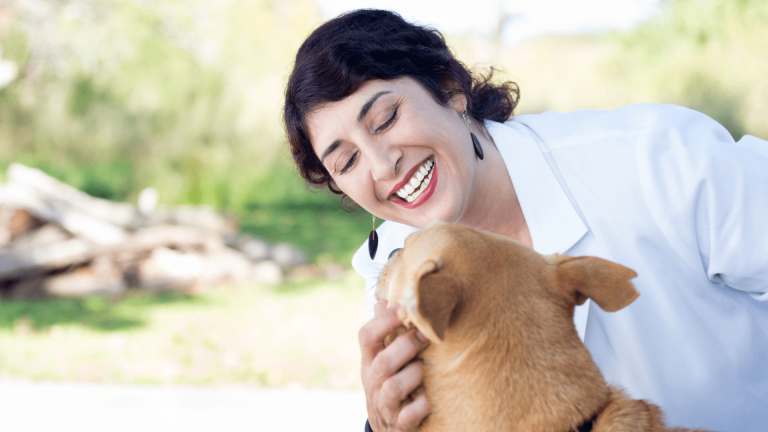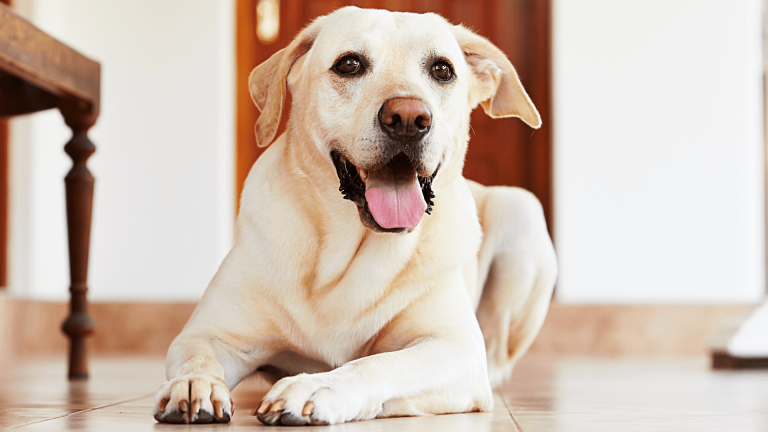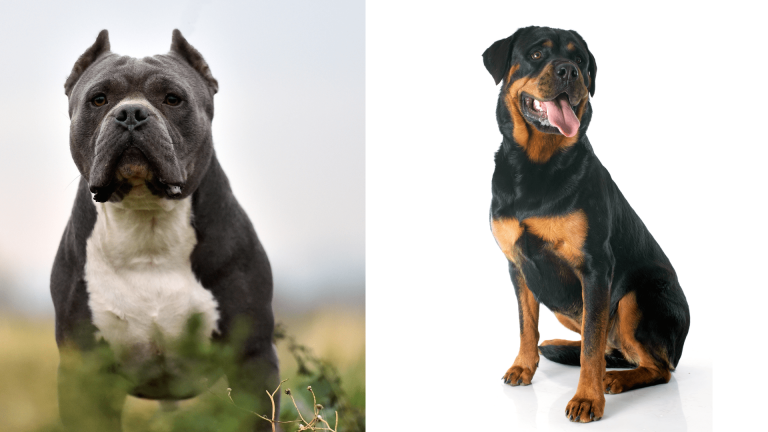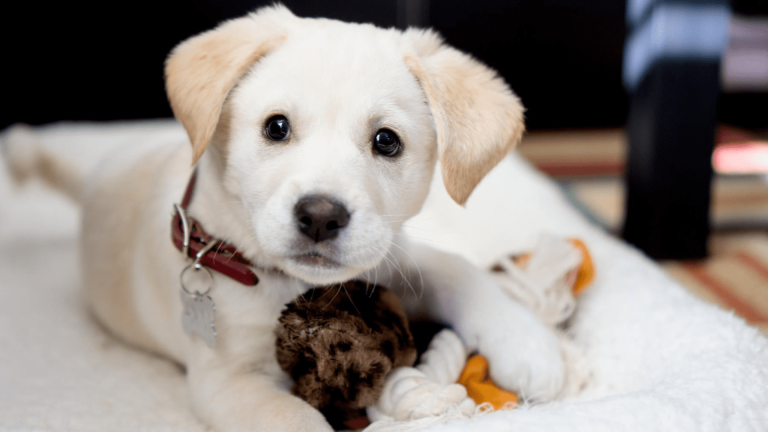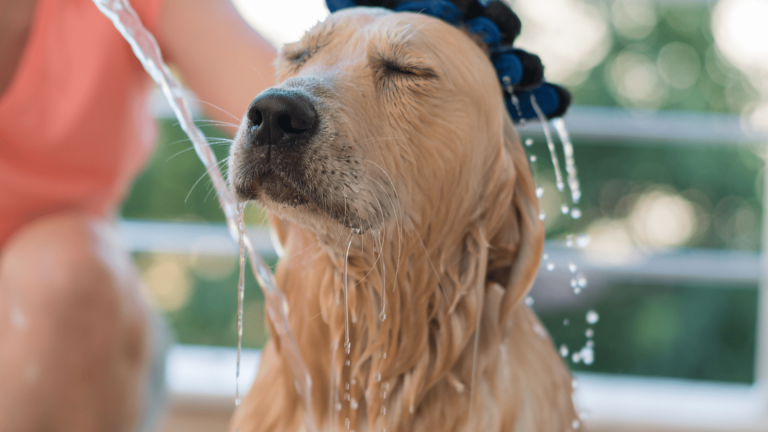Why My Dog’s Nose is Dry? and 10 Facts About It
Why My Dog’s Nose is Dry and 10 Facts About It. A dog’s nose naturally changes from wet to dry multiple times throughout the day, so having a dry nose doesn’t always signal something is wrong. However, it may occasionally indicate a severe underlying medical issue. Thus, when should you exercise caution?
Why is My Dog’s Nose Dry?

Now that you know how it typically stays wet, let’s discuss what it means when your dog’s nose is dry. These ten causes of a dry nose include some entirely unimportant and others more serious.
01. Sleeping
Dog’s don’t lick their noses when they sleep, making the area susceptible to drying out. After around ten minutes, your dog’s nose should return to normal. If not, you can offer them some water to rehydrate them after the nap.
02. High Body Temperature or Fever
Your dog’s nose may get dry from increased body heat. If the weather is scorching, this can occur. (By the way, hot weather improves your dog’s risk of becoming heatstroke. Alternatively, a dog with a fever occasionally has a dry nose. Your dog will likely exhibit other symptoms besides frenzy if that is the cause. These could include showing signs of lethargy or a loss of appetite.

03. Dehydration
If your dog needs to drink extra water, there could be a lot of problems. The nose of your dog changes color as they become dehydrated. Your dog’s dehydration can be brought on by a wide range of factors, including.
Vomiting, heatstroke, fever, diarrhea, and other conditions
Additionally, excessive panting or breathing in dogs can lead to dehydration. Dehydration can also lead to health problems. Therefore, if the situation persists, you must immediately take your pet to the veterinarian.
04. Overactivity

Due to lack of licking, dehydration, and the air blowing on them, your dog’s nose may dry if they’ve been active. Exhaustion following exercise, heat exhaustion or overtiredness, stiffness, tight muscles, and wear and tear on paw pads are a few symptoms of overactivity in dogs.
Pay alert if your body temperature starts to rise dangerously. The pup’s life may be in jeopardy if its body temperature rises above 106 degrees. Both very young puppies and old dogs have problems controlling their body temperature. Please keep your dog well-hydrated while they exercise, and watch out for overheating. Please keep your dog well-hydrated while they exercise, and watch out for overheating.
05. Age
Your dog’s nose will get drier as they get older. Older puppies’ nasal passages get dehydrated because they produce less mucus.
06. Breed

Brachycephalic dogs have short snouts; “brachycephalic” means “short-headed” in Greek. It covers dog breeds like Boxers, Bulldogs, and Pugs. These dogs typically have problems getting their tongues to reach their noses because of their attractive squashed features. Implies that they will have a dryer nose than their longer-nosed peers since they cannot adequately lick their noses.
07. Blocked Tear Ducts or Dry Eye
Dogs have a system of tiny tubes called the nasolacrimal system that allows tears to flow from the eyes to the mouth and nose. Your pet may squint, rub at their eyes, or have thick discharge from them if they have dry eyes (keratoconjunctivitis sicca, or KCS). The dog’s eyes will wet excessively and become stained with tears if their ducts are clogged.
08. Sunburn
The sensitive skin on your dog’s nose and snout can be affected by sunburn, which might result in a dry nose. Thin nasal skin does not effectively protect from sunburn. Additionally, the nose could get gritty, flaky, or dry.
Be careful and aware that touching them might cause them pain. Light-colored dogs and breeds with pink or pale noses may be more prone to sunburn, particularly in the summer. You can use sunscreen to prevent sunburn on your beloved dog’s nose.
09. Allergies
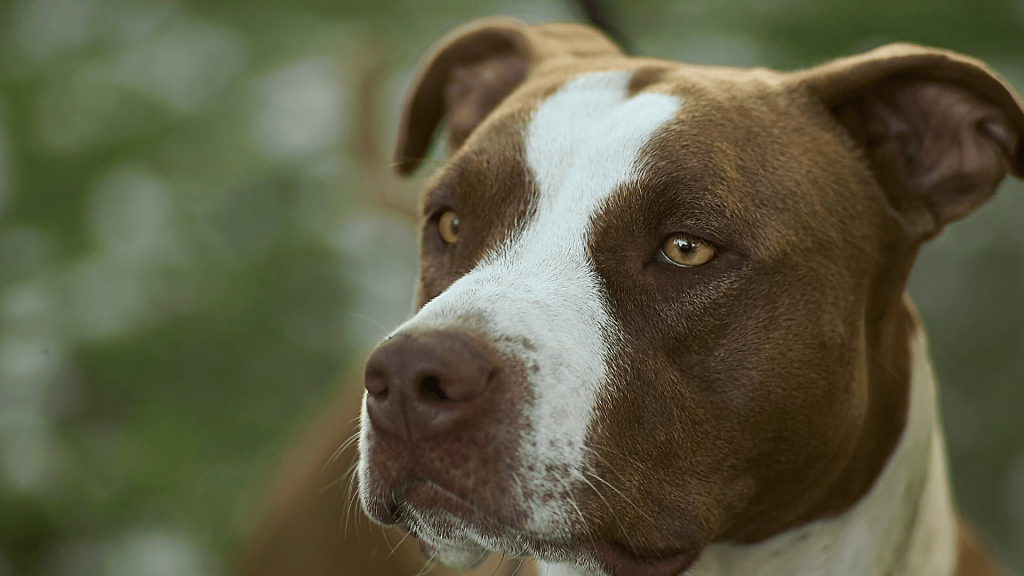
Dogs’ noses might get dry due to allergies brought on by the environment. Your veterinarian can prescribe medication to help you manage your allergies. It could be difficult to identify the true offender. Food allergies, flea allergies, and allergies to cleaning supplies are further examples of sensitivities. Allergy signs include:
· Inflammation, redness, or watery eyes; wheezing; coughing; itching of the skin; runny nose; sneezing; and allergens
Allergy-prone dogs frequently itch their paws and ears. Allergens from the environment include dust, pollen, and mold. Regularly cleaning your home is the easiest way to prevent your pup from having this allergy.
10. Change in Weather
Dry noses can bring on by wind, sun, and extremely cold or hot temperatures. Unless your dog’s buddy has spent much time outside, this should only last a short while.
What Does It Mean If My Dog’s Nose is Dry?
Take a holistic approach to understanding the significance of a dry nose in your dog. As you can see, a dog could have a dry snout for various reasons. Some of them are benign and disappear by themselves. Others, though, do need to visit the veterinarian.
Signs You Should Take Your Dog to The Vet

In general, whenever your dog or cat exhibits a change, you should think about having your veterinarian examine them. Here are several indications that call for a visit to the veterinarian:
- Extremely dehydrated or with sunken eyes.
- Your dog’s nose may be peeling, bleeding, or crumpling.
- Nasal discharge.
- Excessive sneezing or reverse sneezing.
- Your dog’s nose color may change in a way that is unusual for them (not the seasonal variation in nose color that other dog breeds experience, for example).
- Loss of normal “cobblestone” appearance of the nose (i.e., loss of the tiny bumps).
- Dryness of one side of a dog’s nose.
Dog Dry Nose Treatment and Prevention

A dry nose usually goes away on its own. If your dog’s nose is consistently dry, you can assist in keeping it moist. Do not dehydrate your pet. Ensure they always have access to adequate fresh water by checking on their dish several times during the day.
Use a nasal balm safe for dogs to add additional hydration. Coconut oil is a different option. This oil is entirely safe for dogs, and some vets even suggest feeding it to your dog because it has anti-inflammatory properties.
You can use human OTC remedies for dry skin if your pet has an intermittent dry nose. Be sure to rub it well so your dog can’t lick it off or ingest it. Also, be careful not to use products that contain titanium oxide or zinc. Zinc is toxic to dogs and can cause organ failure.
Use sunscreen to shield your dog’s nose from sunburn if their coat is light in color. Try to eliminate any allergens from your dog’s environment if they have allergies. Medication prescribed by a veterinarian may be necessary for more severe allergy problems.
If your dog’s nose cracks and your pet has hyperkeratosis, your veterinarian can cut off the extra keratin and administer an antibiotic or steroid ointment.
Why do Dogs Have Wet Noses?

Two things cause dogs’ naturally damp noses:
1. the thin layer of mucus on a dog’s nose improves its sense of smell by absorbing and storing odors.
2. Dogs’ noses also assist them in controlling body temperature. Puppies “sweat” through their paws and beaks instead of sweat glands, like people do since they lack them.
When Should You See the Vet?
If your dog displays symptoms other than a dry nose, take them to the doctor as soon as possible. These signs include an abundance of mucus coming from your pet’s nose, fever, discolored gums, an excessive amount of nose-licking, an excessive amount of sneezing or coughing, and an excessive amount of face-scratching or rubbing. Depending on the underlying condition that is present, the treatment will change.
Bottom Line
A dry dog nose is typically nothing to be concerned about. A healthy dog occasionally experiencing a dry nose is very average, especially if it has recently woken up or has been engaging in rigorous exercise. The straightforward remedies for dry dog noses listed above will help your dog feel better quickly in this situation.
But some more serious illnesses can also result in a dry dog nose. These frequently have other symptoms that point to a more severe issue. Your holistic veterinarian can assist in diagnosing and treating your dog’s problems if you observe any of these additional signs.
So, I hope you got the full idea on Why My Dog’s Nose is Dry and 10 Facts About It.
Please comment below about your ideas and share this “ Why My Dog’s Nose is Dry and 10 Facts About It ” article with your friends.
Keep yourself updated by regularly visiting our website for more exciting content. And don’t miss out on our previous articles as well.
Until You Can Read : Why Get A Dog? & 10 Advantages of Owning a Dog.

